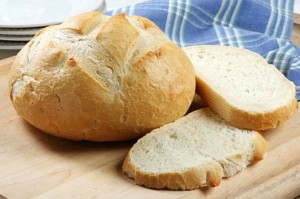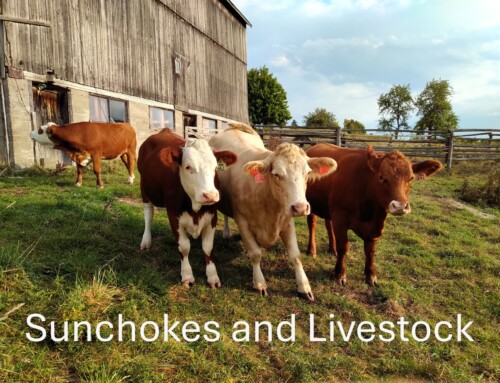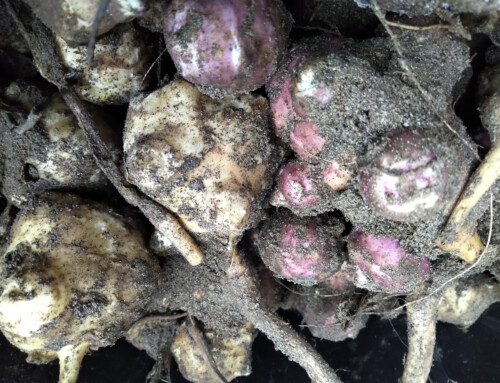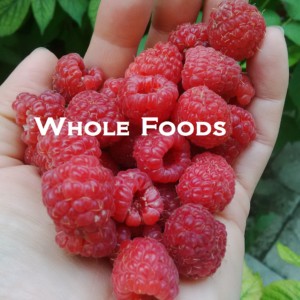 Whole Foods Closer to Nature’s Way
Whole Foods Closer to Nature’s Way
5 Reasons to Consume Whole Foods is considering what goes into your body because you are what you eat. Whole foods looks at what happens to the food from the time it is harvested, closest to nature, to the time you eat the food.
This article includes real stories to bring light to the information. Have you ever stared down at your plate and wondered about how your food got to be that way (i.e. the creamy sauce or the hot dog)? Have you ever wondered what goes into your pill, whether it be your nutritional supplement (i.e. red one a day vitamin pill) or a prescription drug? Questions are a healthy thing if you do not drive yourself crazy with the unpleasant thoughts as the mind also plays a vital role in our health.
Many testimonials attest to the difference a whole foods diet makes to their health. For over 10 years, I have worked with the ‘clean diet‘ which incorporates a lot of whole foods. For simplicity, I will focus on only 5 reasons to consume whole foods with defining whole foods as close to nature as possible.
These 5 reasons to consume whole foods are:
- Nature’s Intention
- Water Content
- Better Digestion
- Nutritional Value
- Healthy Results
Nature’s Intention
When I write about whole foods and nature’s intention, I mean the wild plants and animals (on their natural diet and not unfavourably genetically altered). Recently, I consider sourdough breads to be a part of whole foods – made with whole grains and water. Another way to look at it, would be to consider how certain foods came to the table a hundred years ago or more with still allowing for the science and progress to play a role. Let me tell you two stories. One on vegetable oil and another on coffee.
Vegetable Oil – What has changed, the recipes or the quality?
One evening in Brampton, I presented on nutrition to over 100 people celebrating Independance Day for Trinidad and Tobago. A very happy crowd!! A grand celebration!! I spoke on nutrition, the food quality especially fats among other things. Afterwards, many came over to me with questions. One such person was an elderly person. In the sea of people around me, a question popped into my head. I turned and looked at this elderly man who spent most of his life in India. I asked him where his vegetable cooking oil came from. With a deep realization, he looks at me and says “it was made fresh every day.”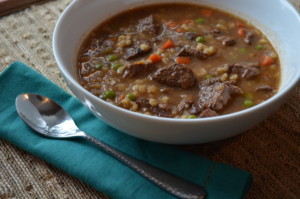
A number of their recipes uses vegetable oil. I hear that this culture has a growing rate of heart disease and diabetes. Vegetable oil is highly processed or RBD (refined, bleached, and deodorized). As it turns out I worked for George Weston in purchasing commodities (vegetable oil, flour, sugar, cocoa, etc.) for close to 20 years. Edible Vegetable Oil Refining or pdf Version
Mexican Foods – Change the Country Only
The recipes do not change but the quality of the ingredients going into the recipes have. This is not just happening to the people of India. Five years ago, I witnessed a dinner made by daughter’s friend’s mother. She was born and raised in Mexico but now living in Toronto with her family. “Come over and try some traditional Mexican foods,” she offered happily. I looked forward to it with the mystery of what she would use to make the Mexican dishes. As you may have guessed, the ingredients were mostly from prepackaged processed foods with only the guacamole being from fresh whole food ingredients. The father was just diagnosed with onset diabetes. I ate everything on my plate with grace and said yes to water and not a soda pop.
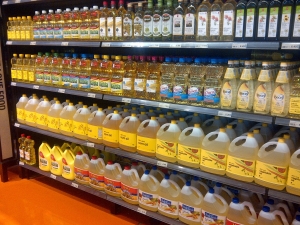 More on Vegetable Oil
More on Vegetable Oil
Vegetable oil in a 2L jug remains in your cupboard for weeks, months and years. According to business and health canada, it is the sign of a safe product if product is shelf stable. Distribution has an easier time with storing refined oils unlike businesses with perishables (i.e. fruit and vegetables.) Let’s agree that is a good thing for product to be safe, but are they as healthy and nutritious?
If you put your car in a blender, does it still function as a car? According to science, changes occur to the molecules when we refine or heat food (besides making it more shelf stable.) This would also include microwaving [Microwaves pdf from For Your Better Health Program Wk5].
Vegetable oil usually comes from seeds, for example, corn, soybeans, canola seed, pumpkin seed, grapeseed, etc. In the US, cottonseed oil became popular over 100 years ago. Cotton seeds was used to make vegetable oil in the early 1900’s because cotton seeds were a waste by-product of the cotton industry therefore making it a good money making decision. In Mexico, they used corn to make their fresh oil. Fish oils are a waste by-product of the fishing industry.
Most vegetable oil today is ‘refined’. Cold pressed oils are more readily available. Consider using unrefined fats and oils from cold-pressed organic sources, for example, grass-fed butter/animal fats, coconut oil, olive oil, pumpkinseed oil, seal oil and so on. Many whole foods contain a portion of fat, such as, nuts and seeds, eggs, etc. Most salads require a salad dressing but most commercial salad dressings contain the refined oils. Make your own salad dressing easily.
Coffee – What has changed?
Recently, I found myself in a conversation with someone who was raised in Columbia. He told me just how they consumed coffee.
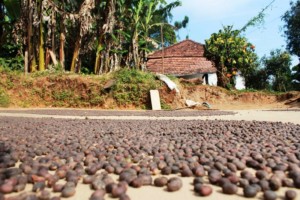 First thing in the morning and as a young boy, he would climb onto the roof top. He would scoop up some sun dried coffee beans then bring them to the kitchen for grinding. Their brew was not from roasted beans, no no, it was from sun dried coffee beans. They would not dream of having multiple cups a day and black was preferred.
First thing in the morning and as a young boy, he would climb onto the roof top. He would scoop up some sun dried coffee beans then bring them to the kitchen for grinding. Their brew was not from roasted beans, no no, it was from sun dried coffee beans. They would not dream of having multiple cups a day and black was preferred.
One of my clients this week told me he use to drink 12 cups a day. Have we lost sight of moderation?
Some people react to my coffee part in my presentation ‘What about coffee?’. For the most part, I put the questions out there because surely our nerves and brain function matter to most of us, if not all of us. Coffee is a global business, hence, the research and marketing may be geared towards supporting their business profits. Seems logical!
“Coffee shops brought in approximately $10 billion in 2011, according to First Research.” According to the Houston Chronicle
For some people it is obvious that their health is being affected by drinking coffee over others (i.e. irritation) – that does not mean they are not being affected at all by drinking coffee. How much one drinks, what is being added, time of day, etc. have to be considered alongside the unique individual. There is information for and against coffee. What should we believe? Most articles do not include links to the original research stated, so what am I to believe is true?
My Coffee Story
My story – I have never been a coffee drinker. In the few cups I have consumed, it was an immediate bowel moving experience. I never needed to have a pick me up first thing in the morning. Like my father, I am an early morning person – I hop out of bed looking forward to the day. I never went to University full time which is where a number of my friends picked up the coffee habit. When I was studying at the art college (OCAD), the colour class would have lots of homework so I paced myself which meant I didn’t do any socializing. This gave me the time to work out, etc.
Sleeping like a bear and looking forward to falling asleep, helped too. I felt the difference waking up after a late night – a foggy head feeling but nothing water and some movement wouldn’t resolve. I listened to people talking about how they needed their coffee first thing and without it they would be grumpy. So, let the truth be known, I promised myself at the age of 8 that would not be addicted to anything so coffee never had a draw for me.
Considerations: So how is our food being processed or prepared? Balance is going to be key and making small changes is a start. Set small goals and take the time to incorporate them into your lifestyle. Choose healthier fats and how you use them, or perhaps, ween yourself down in the number of coffees you drink daily looking for healthy alternatives. These alternatives may start with teas. [For Your Better Health Program explores your liquid choices.]
Water Content
 Science confirms that we are mostly water (55-80%), hence, plants and other mammals are mostly water. Not so with grains, seeds and nuts. Some examples of the water in food are:
Science confirms that we are mostly water (55-80%), hence, plants and other mammals are mostly water. Not so with grains, seeds and nuts. Some examples of the water in food are:
- Cucumber 96%
- Strawberry 92%
- Apple 84%
- Beef, raw 73%
- Beef, cooked 62%
- Jams/preserves 30%
- Beef Jerky 23%
- Wheat flour 11%
- Peanuts, raw 8%
- Peanut butter 2%
Now you know why peanut butter sticks to the roof of your mouth!
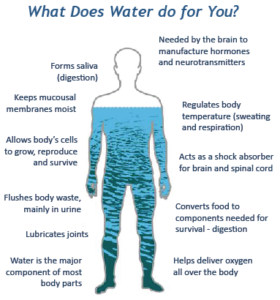 Cooking removes water content from the food. Comments on a dried cake or a tough steak include ‘hard as a rock’ or ‘tough like shoe leather’. A good reason to consume a good amount of your water from foods is the kind of water that fruits and vegetables contain. According to Dr. N.W. Walker, the water in fruits and vegetables are naturally filtered.
Cooking removes water content from the food. Comments on a dried cake or a tough steak include ‘hard as a rock’ or ‘tough like shoe leather’. A good reason to consume a good amount of your water from foods is the kind of water that fruits and vegetables contain. According to Dr. N.W. Walker, the water in fruits and vegetables are naturally filtered.
Motivation: Look what water helps with.
Considerations: If it isn’t water, it has another agenda! Drink pure water and consume a variety of whole foods daily. Minimize caffeine and sugar along with chemicals in processed foods as the body requires water to process toxins. In cases of water retention, it is the body’s natural state to dilute the toxins. In this case, consider additional guidance to understand it further (natural healthcare practitioner).
Better Digestion
Digestion is the first step in transforming food into living tissues of our bodies and into the fuel needed to keep those tissues functioning. David W. Rowland, Digestion: Inner Pathway to Health
My presentation quiz goes like this. What four letter word is one of the best things you can do for your health? You can do it anywhere. It costs you nothing. It is easy to do. The answer is CHEW.
Your digestion benefits from consuming whole foods beginning with the chewing of your food. As much as juicing can be higher in nutritional content, it lacks the fibre. A person making a whole food smoothie (using a machine such as the Vitamix) would also benefit from chewing. Yes, I am asking that you start with whole foods only to chew it to a liquid. Funny eh? The focus is really on quality foods making its way into your body to build, strengthen and fuel.
Chewing stimulates the digestive juices and signals your stomach something is coming.
Benefits of Chewing Your Food
By chewing your food:
- you take the time to be mindful of what you are eating
- it is relaxing
- gives your body time to register you are full so helpful for managing or losing weight
- you break down the food for easier digestion in the stomach and intestines
- it is easier to pull nutrients from the food
- there is less chance of gas and bloating
- it makes for better elimination
For a healthier you, start with chewing your food better, and see what is left over. Your digestive system is key in the healing process and to maintain a healthy body.
“You are what you eat, digest and not what you eliminate.”
Considerations: Chew your food well. I put it this way at my presentations ‘drink your food and chew your liquid (food)’.
Nutritional Value
In the study of soil ecology, it was explained to me that if there was a lack of minerals in the soil then the food would also be lacking – minerals do not come out of thin air. I also understand that the different foods have a different mineral profile, such as, wheatgrass having 90+ minerals and the tomato being closer to 50, hence a variety of local foods especially if wheatgrass or high mineral content foods are not in your diet.
This is where I suggest that you consume organic fruits and vegetables or such where the minerals are put back into the soil or crop rotation is used. Building the topsoil and not weeding a garden are possible practices.
Plants grown in their natural habitat (wild) would have a stronger immune system. Yes, plants have an immune system, a respiratory system, and a circulatory system. Does this remind you of someone?
Animals at the zoo not eating their natural diet of whole live foods have nutritional deficiencies and require sophisticated supplementation and/or special foods to be brought in.
How about vitamins? By consuming whole foods with their natural fat content, you take in the fat soluble vitamins, such as, Vitamins A, D, and E. In my research, I discovered that fat is important in many functions besides nutrient absorption. Every cell in our body and our brain relies on essential fatty acids which is found in fats and oils. In fact, scientists are now saying that you need fat to lose weight, etc. A low fat diet is harmful. There may be times when low fat like juicing becomes therapeutic. [Consult a healthcare practitioner for guidance.]
Benefits of Healthy Fats and Oils
Healthy fats and oils are required for:
- an efficient energy source
- lubrication…soft skin
- nerve and brain function
- satisfying hunger
- supporting a healthy immune system
- and more
One particular fat or essential fatty acid is Omega 3. The benefits may include:
- managing inflammation which is a part of every disease
- improving neuropathy (diabetic and cancer treatment related)
- improving athlete recovery and building strength
- hormone balancing
- and much more
Considerations: Consume more organic foods especially where healthy soil ecology is a consideration. If you go to a farmer’s market, ask them about their soil management practices. Consume a healthy amount of whole unrefined fats including omega-3 and omega-6, the essential ones meaning our body does not make them. Read ‘Top 10 Diseases Related to Omega-3 Deficiency‘.
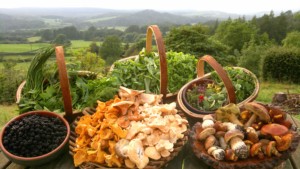 Healthy Results
Healthy Results
This part is my favourite because your experience is the only way to test any of the above to see how it will work for you today, tomorrow, next month and in years to follow. Healthy results may include sleeping better, losing weight, glowing skin, better bowel movements, more energy, less foggy brain, or healthier babies.
Perfection is not ‘for sale’ so why buy into it. People make this up! Enjoy the journey.
Whole foods can take on many forms besides the fruits, vegetables, meats, fish, etc. Other examples of whole foods include homemade soups, stews, sourdough breads (whole grains and water), hot cereals, honeys, and the multitude of raw food recipes and recipes of many kinds. Others include an omelette or a roast turkey dinner. Also includes a variety of dips, such as hummus, guacamole, etc. Most baked goods include vegetable oils and sugar – these are to be consumed in moderation. Some desserts today include no refined sugar, such as, chocolate pudding made with avocado or nut and seed balls. Healthy fats are tasty too. My favourite is pumpkin seed oil.
Considerations: Write out some whole food meal ideas and schedule them into your week or weekends. Consider that there are many whole food meals that are easy to do and fast to make. Start with a Sunday dinner. Make the time. You deserve it.
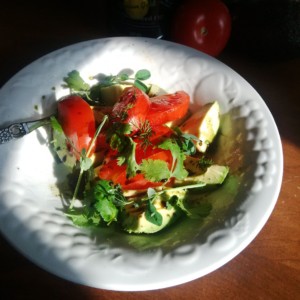 Working Towards a Whole Food Diet
Working Towards a Whole Food Diet
These 5 Reasons to Consume Whole Foods means being able to read the label and know where the ingredients come from. Shoppers will find whole foods in the produce or butcher section, however, there are, nuts, seeds, whole grains and sourdough bread made with whole grains. Farmer’s markets are wonderful places to find local, in season whole foods. Happy exploring.
For instance, when you see raspberry on the label, you imagine a raspberry bush. One of the key things I came to realize is that as consumers we demanded foods be prepared for us – the age of fast food and prepared foods or TV dinners. Popping a pill to change how we feel or because we were told we had to, is popular in marketing. The drug and supplement companies are in business to make money. Makes good business sense but is it at the cost of our health? There is no magic bullet when it comes to your good health.
Resources:
Water content of common food products.
The USGS Water Science School. The water in you.
Diet is a Growing Concern at the Zoo. NY Times 1988 Zoo animals and deficiencies…not on their natural diet.
Cottonseed Refining Huatai Cereals and Oils Machinery Co., Ltd. pdf Flowchart
Sourdough Bread: Read Myra’s story on how whole grain foodstuffs are not readily available in Mexico.
Photo Credits:
Wild Foods by Borgen Magazine
Raspberries, Salad and Vegetable oil taken by Cheryl Millett


